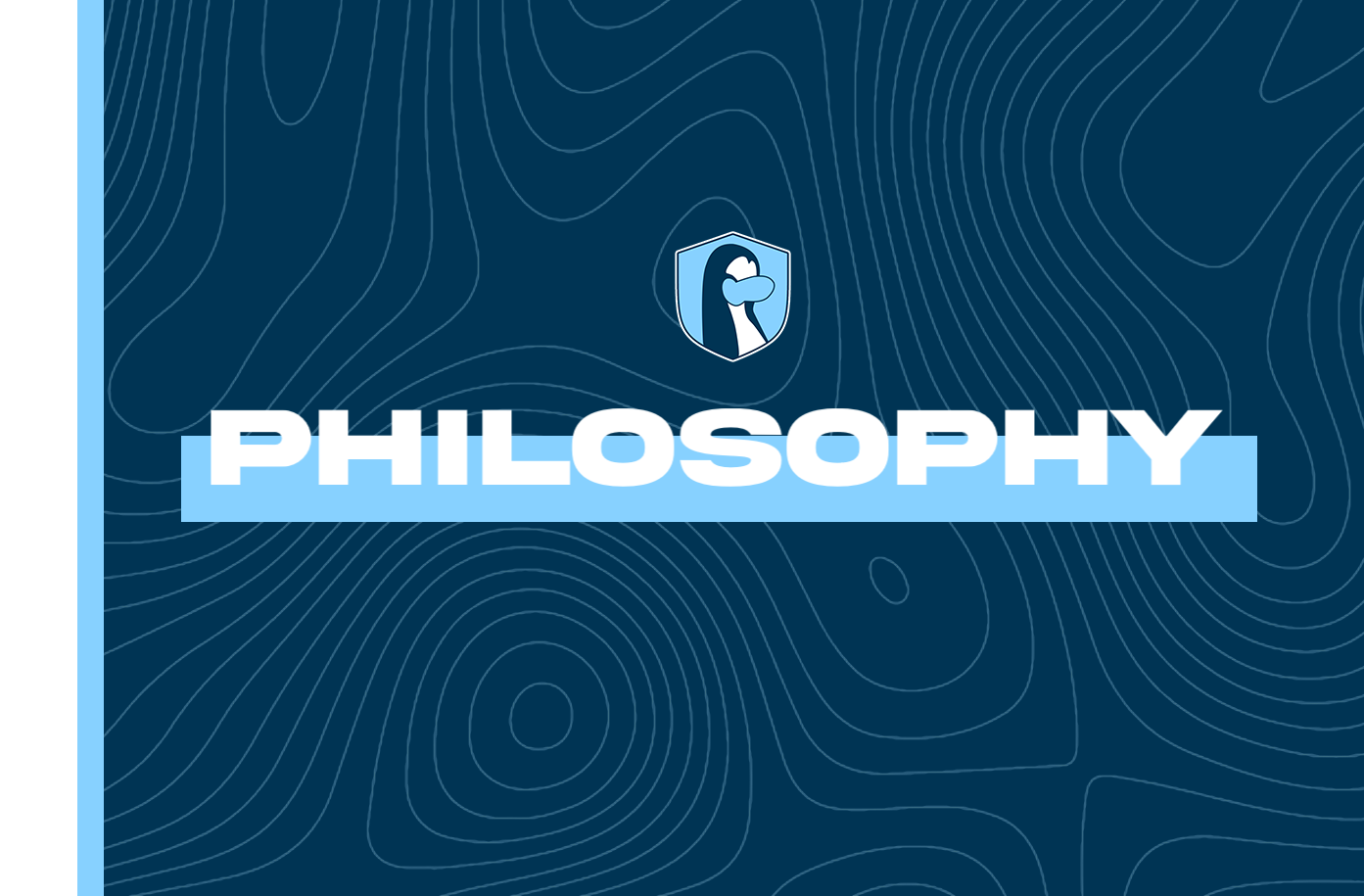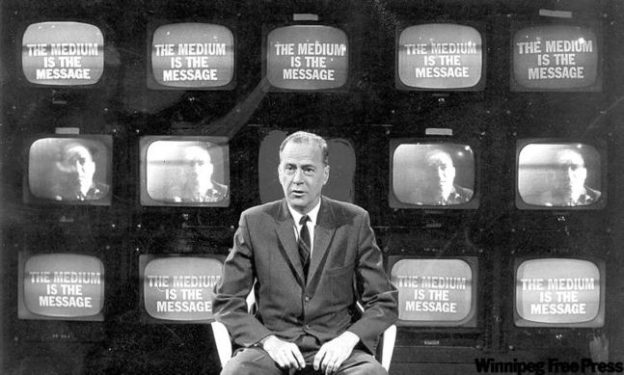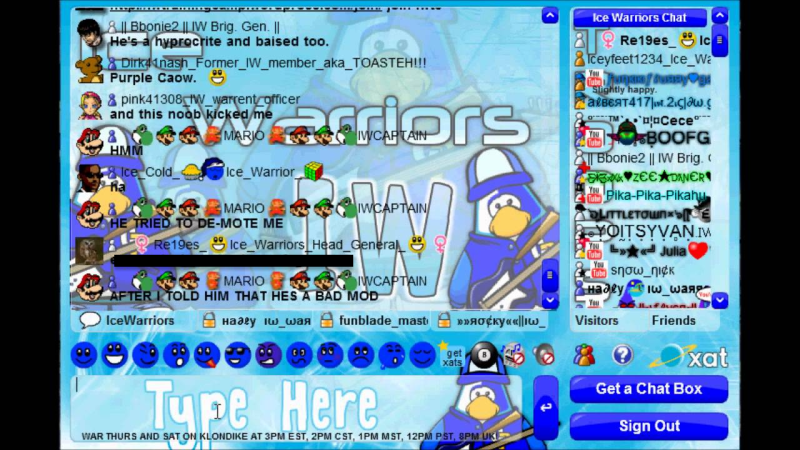We often focus on the media’s content, whether the news, a television show, or a social media post. However, the true power lies not in the content, but in the medium itself. It shapes our perceptions and interactions without us even noticing. In this post, I will explore how this theory reveals itself within Club Penguin Armies.

Designed by MasterDS
Understanding the medium
In Understanding Media: The Extensions of Man, Marshall McLuhan argues that it is the medium, and not the content, that impacts our society. What you say over the telephone is less important than the telephone service itself. The medium affects everyone, while the content only engages a few. This idea then carries over into radio, television, and print as well. It is not that the content is meaningless, but rather that the content exists independent of the medium. In the case of television, the medium has a vast and immense technological framework and social reach, while the effect of a particular program is incidental.
He also drew distinctions between hot and cool media. Hot media have a high definition and lower public engagement. Cool media invokes a higher public consciousness and needs to involve more public participation because it is low-definition. A strict example would be a lecture versus a seminar. A hot medium engages one sense, which is why radio, film, and photography are considered hot media, whereas television and comics fall into the category of cool media.

Marshall McLuhan, the man behind the phrase “The Medium is the Message”
Consider the humble light bulb. What was once considered revolutionary back then is now a common occurrence in our modern world. By itself, it has no content. What it does have is the ability to create environments that would otherwise be engulfed by a shroud of darkness by its mere presence. In other words, the light bulb is a medium without a message. We shape our tools, and thereafter they shape us. They shift our emphasis from human agency to a sort of human existential transformation.
The Rear View Mirror & The Global Village
We look at the present through a rear-view mirror. We march backwards into the future. Suburbia lives imaginatively in Bonanza-land. (Marshall McLuhan, The Medium is The Massage, 1967)
Whenever a new form of media appears, people tend to judge it based on what came before. People thought of the car as a carriage without a horse, and the television was merely a radio with pictures. Today, we could say that the smartphone is nothing more than a portable computer. In the last line, McLuhan refers to the TV series Bonanza, which was popular in the 1960s and portrayed the Wild West. He pointed out the irony of a show portraying the Wild West being so popular in an era where new technologies were developing rapidly. People found comfort in the identity cards, the old ways of finding out “Who am I,” that no longer work today.
In the information age, everybody involves themselves in complex processes. In the Gutenberg Galaxy, McLuhan introduces the concept of a Global Village, where everyone is interconnected. A place where time and space collapse, drawing distant parts of the world into a single community. The Gutenberg man stands for traditional media, or books. These promote individualism, as opposed to the new electronic media, which destroy privacy. According to McLuhan, the new electronic media bring back the tribal man.

The visualization of an interconnected society
Tribal men and women shape their identities in communication feedback loops, they become folded over into themselves and change immediately. Sounds familiar? Today, we care more about controversial tweets, the new TikTok trend, or a funny meme found on Reddit. The value of privacy is, in fact, a rear-mirror value. Although the Global Village is a communal place, it is not a place of harmony. It is not some idyllic return to nature, but rather a method of mutual surveillance by technological means.
How It All Connects to Us
Now that I have explained all these revelations, what comes to your mind? I think about how many years have passed from when Oagalthorp used the Miniclip Forums to when we went to chat on Xat, and now to Discord, even going through all the separate Club Penguin Army media organizations to a unified Club Penguin Armies organization. All of those developments seemed to be in response to human need. I think of those developments as extensions of the human body. The Forums, Xat, and Discord are extensions of a leader’s agency to command, strategize, and act.
Each new medium changes something else. It is not just what we say or do, but how we change in the process. As McLuhan would have it, the content of the new medium is always the old medium. The tone of diplomacy, the velocity of strife, even the identities we form as leaders or troops are molded by the platform we occupy. We refer to Discord as the “new Xat” and to tournaments as things that existed in the CPAC era. But none of it is the same. Our community may still look the same, but we operate differently. We are instant, performative, and more connected.
The changes to Club Penguin Armies Development are not just about the content, but about the mediums. When we moved from Miniclip Forums to Discord, it changed how we communicate, lead, and respond. We create a different environment that affects how we interact with our community. It may not be necessarily visible, but the changes we encounter are deeply felt. If we understand how our systems shape us, we may begin to move forward rather than backwards. Has McLuhan‘s lens changed how you see media and the space?
Zenishira
Reporter
